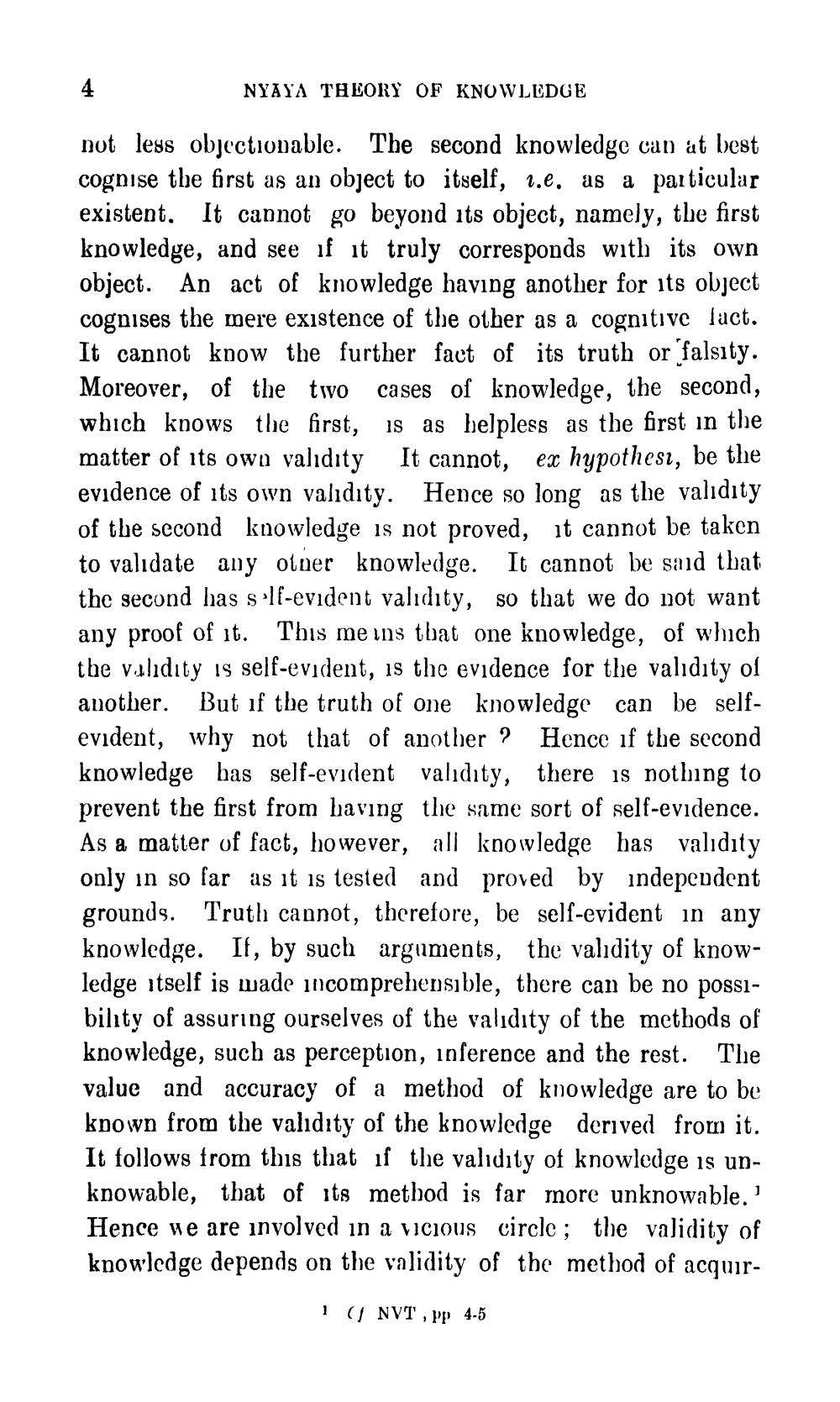________________
NYAYA THEORY OF KNOWLEDGE
not less objectionable. The second knowledge can at best cognise the first as an object to itself, 2.e. as a particular existent. It cannot go beyond its object, namely, the first knowledge, and see if it truly corresponds with its own object. An act of knowledge having another for its object cognises the mere existence of the other as a cognitive lact. It cannot know the further fact of its truth or falsity. Moreover, of the two cases of knowledge, the second, which knows the first, is as helpless as the first in the matter of its owo valıdıty It cannot, ex hypothesi, be the evidence of its own validity. Hence so long as the validity of the second knowledge is not proved, it cannot be taken to validate any other knowledge. It cannot be said that the second has s»lf-evident validity, so that we do not want any proof of it. This meins that one knowledge, of which the validity is self-evident, is the evidence for the validity of another. But if the truth of one knowledge can be selfevident, why not that of another ? Hence if the second knowledge bas self-evident validity, there is nothing to prevent the first from having the same sort of self-evidence. As a matter of fact, however, all knowledge has validity only in so far as it is tested and proved by independent grounds. Truth cannot, therefore, be self-evident in any knowledge. If, by such arguments, the validity of knowledge itself is made incomprehensible, there can be no possibility of assuring ourselves of the validity of the methods of knowledge, such as perception, inference and the rest. The value and accuracy of a method of knowledge are to be known from the validity of the knowledge derived from it. It follows from this that if the validity of knowledge is unknowable, that of its method is far more unknowable. 1 Hence we are involved in a vicious circle; the validity of knowledge depends on the validity of the method of acquir
I (NVT, pp 4-5




